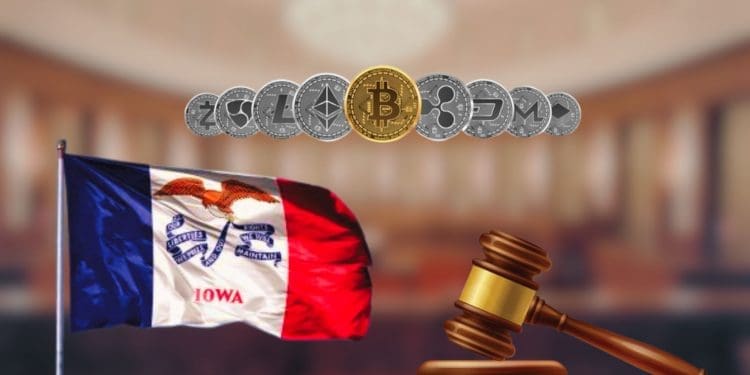- Iowa approved a new bill that aims to integrate digital assets into commercial transactions by providing definitions and legal standing for terms like “digital asset” and “smart contract”.
- The bill recognizes smart contracts as legally valid, facilitates electronic real estate conveyance, and classifies certain digital assets as personal property.
- It outlines legal protections for purchasers of digital assets and remains neutral on central bank digital currencies, balancing innovation and consumer protection.
Iowa takes a progressive step in recognizing the importance of digital assets by approving a new bill that aims to integrate them into commercial transactions. The extensive 91-page legislation promises to enhance legal clarity while catering to the evolving digital economy.
House File 2519 provides comprehensive definitions and legal standing for digital assets.
The bill, titled “An act relating to commercial transactions, including control and transmission of electronic records and digital assets,” clarifies the legal standing of digital assets. It offers precise definitions for terms like “controllable electronic record,” “digital asset,” and “smart contract.” This aims to reduce ambiguities and foster a more secure environment for digital commerce.
Smart contracts and electronic conveyance of real estate
The bill recognizes the legality of smart contracts, ensuring they have the same legal standing as traditional contracts. It also references provisions that facilitate recording real estate electronically, highlighting the role of electronic services systems.
Digital assets classified as personal property.
A key aspect is amending the definition of “digital asset” to eliminate previous exclusions. This means certain electronic records, like those related to physical property, are now considered digital assets. The bill simplifies their classification as personal property.
Legal protections for purchasers of digital assets
The legislation outlines no-action protection for purchasers of digital assets. Their ownership is protected against claims based solely on the absence of a financing statement. This aims to streamline digital transactions.
Neutral stance on central bank digital currencies
The bill states its provisions should not be seen as endorsing a national digital currency. This ensures neutrality regarding central bank digital currencies.
Balancing innovation and consumer protection
The bill’s detailed approach introduces regulatory and operational challenges for digital asset providers and users. However, it also offers opportunities to enhance the legal infrastructure supporting digital transactions in Iowa.














